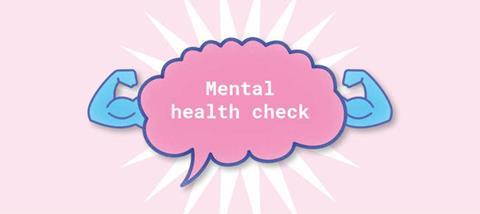
Even before these unprecedented times, however, surveys were showing that young people are struggling with anxiety about everything from school work to climate change, and it can be all too easy to resort to using verses such as “Do not be anxious about anything” (Philippians 4:6) as sticking plasters when we’re unsure about how best to respond.
It’s important to remember that anxiety, in and of itself, is not a bad thing. Anxiety is designed to keep us safe and responding appropriately to threats to our life by allowing us to fight the threat ahead of us, freeze (which historically meant being able to play dead in the face of a physical threat to our lives) or fly (get as far away as possible from the threat). Symptoms such as increased heart rate or sweating helped people in danger, and even now anxiety can allow our focus to sharpen and reactions to speed up.
Being able to remind children that there is a purpose to anxiety can allow them to realise they aren’t going mad or experiencing something unusual. For some, however, anxiety flips from being a part of the solution to being a part of the problem. If people suffer from anxiety disorders such as generalised anxiety disorder – characterised by near-constant worries and feelings of dread; panic disorder – characterised by acute attacks of overwhelming physical and mental symptoms of anxiety and obsessive-compulsive disorder – where the anxiety fuels obsessive thinking and compulsive behaviours, it’s important to seek psychological help as soon as possible.
In the midst of anxiety, whether in the form of an anxiety disorder or more general anxieties, an extra concern for Christian young people can be that they feel experiencing anxiety makes them a ‘bad Christian’.
Verses such as Philippians 4:6 can add guilt to anxiety; yet when we take a look at scripture as a whole there is hope and comfort, rather than condemnation for those experiencing anxiety.
To start, it’s important we look at the whole verse, which reads: “Do not be anxious about anything, but in every situation, by prayer and petition, with thanksgiving, present your requests to God.” The exhortation not to be anxious relies upon the character of God who hears our prayers, not on our own stoicism.
Secondly, the verse which follows is a further encouragement that not feeling anxious isn’t up to us. It’s an encouragement that when we share our anxieties in prayer, we are met by the overwhelming peace of God. “And the peace of God, which transcends all understanding, will guard your hearts and your minds in Christ Jesus.”
Thirdly, this verse is best read alongside Jesus’ wider teachings on worry found in Matthew 6:25-27.
Together with the text in Philippians, this passage shows us that the teaching is about not ruminating on consuming things and trusting in God to provide what we need.
Furthermore, we see in the life of Jesus that anxiety is not a sin because Jesus himself experiences a severe anxiety reaction! When he prays the night before his crucifixion, Luke’s Gospel recounts that Jesus’ sweat fell like “drops of blood” to the ground (Luke 22:44). This is actually an incredibly rare condition called haematidrosis where extreme anxiety causes capillary glands to burst, meaning our sweat has blood in it. This seems to me ultimate proof that anxiety is not a sin, rather something which can be brought to Jesus, knowing that he understands.
This is where our hope and comfort lies: we are never alone in our most desperate anxiety and anguish because Jesus experienced it and took it to the cross for our sakes.






































